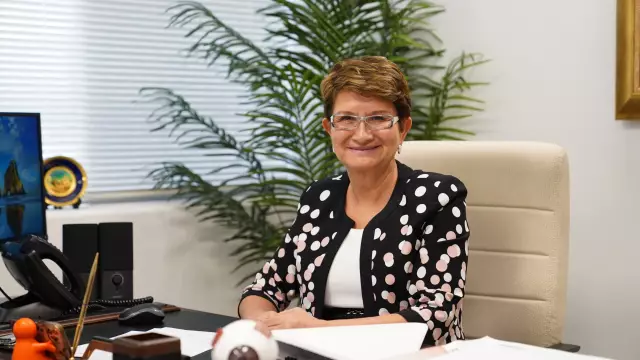- Author Rachel Wainwright wainwright@abchealthonline.com.
- Public 2023-12-15 07:39.
- Last modified 2025-11-02 20:14.
Audiologist
The audiologist deals with the diagnosis and treatment of various diseases associated with hearing impairment.

What does the audiologist treat and how
Unfortunately, not every medical institution offers an appointment with an audiologist. A completely natural question arises: what does the audiologist treat? In fact, an audiologist is an otolaryngologist with a narrower profile specialization, possessing a deep knowledge of the physiology of the hearing organs and the auditory perception of the brain.
In modern conditions, every tenth inhabitant of the planet needs the help of an audiologist in connection with hearing pathology of varying severity, and in recent decades it has been observed not only in older people, but also in representatives of the younger generation.
Unlike the ENT, dealing with acute conditions (otitis media and others), the field of activity of the audiologist is persistent hearing impairment, diseases of the middle ear, traumatic and congenital pathologies. In the overwhelming majority of cases, the audiologist is required to establish and, if possible, eliminate the cause of the disease.
In the arsenal of the audiologist there are such diagnostic techniques as audiometry, which allows to objectively assess the general condition of hearing and the presence of impairments, and tympanometry, which determines the mobility of the auditory ossicles and eardrums.
If necessary, an audiologist may appoint a consultation with another specialist (surgeon, neurologist, etc.) or additional research methods (magnetic resonance imaging or computed tomography, various laboratory tests, and others). After an adequate and correct diagnosis, the audiologist prescribes therapy. It can be medication or involve certain procedures (for example, removing sulfur plugs).
In the absence of positive changes, the audiologist selects a hearing aid and adapts it individually for each individual patient. If the use of a hearing aid is ineffective, the audiologist will refer the patient to sign language and speech comprehension by articulation.
A qualified audiologist owns the latest modern methods of diagnostics and treatment of pathologies of the hearing organs. The rapid development of medical science and technology in the 21st century allows modern audiologists to replace ossicles and implant hearing prostheses. Patients should remember that at the first signs of hearing impairment, it is necessary to make an appointment with an audiologist. When choosing an audiologist, the reviews of friends, acquaintances and colleagues will help you decide on the candidacy of a specialist.
Children's audiologist: what is the difference
Let's figure out what the audiologist treats in infants and older toddlers. The pediatric audiologist deals with the diagnosis and correction of hearing impairments in children, starting from birth. The work of a pediatric audiologist has its own definite and quite specific specifics.
There are scientifically established rates of development of the hearing system of a child in the first year of life, according to which the diagnosis of hearing loss by an audiologist during this period is somewhat difficult and not always correct, although some small patients with unusual behavior may draw special attention of a specialist.
In children from one to four years old, the audiologist can accurately diagnose hearing loss and, with a high probability, assume mild hearing loss. Developing at a later age, it practically does not affect speech, that is, outwardly healthy children need a mandatory visit to a pediatric audiologist, because a pathology that is not detected in time can lead to deafness. If your child often asks to make the TV sound louder or hears speech better when the speaker turns to face him, be sure to make an appointment with an audiologist. When choosing a specialist for your baby, be guided by the feedback from parents of other children about audiologists - they will help you find a knowledgeable and sensitive doctor.
Found a mistake in the text? Select it and press Ctrl + Enter.






